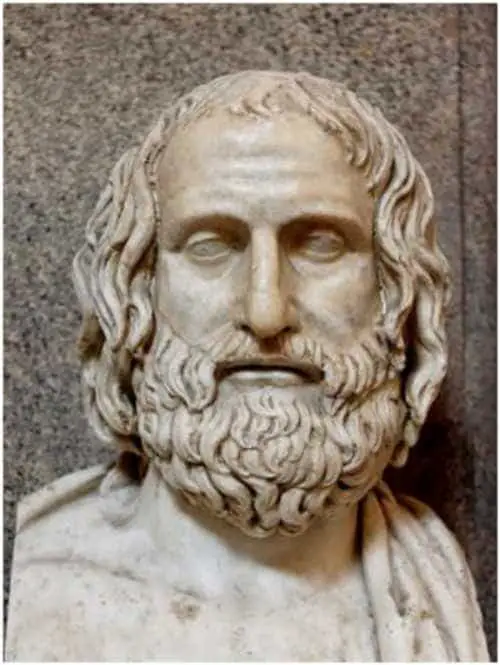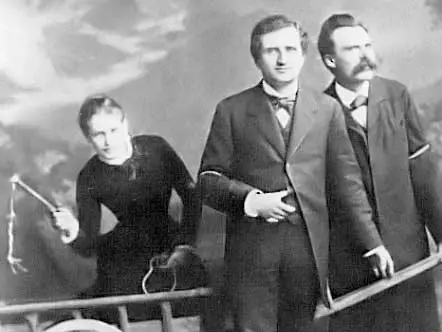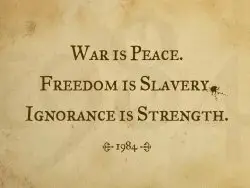Agrippa’s paradox (Sextus Empiricus’ modi), and Nietzsche’s insight


Agrippa’s paradox (Sextus Empiricus’ modi), and Nietzsche’s insight
There is almost nothing we know about the person attributed with today’s paradox. In fact, Wikipedia even denies him this attribution (or rather, it denies to call the paradox after him). One of the reasons is perhaps that we actually know very little about Agrippa, except from the writing of Sextus Empiricus [sidenote: now that’s an interesting name]. In fact, we don’t even know his (or her?) name for sure. Another could be that many have come up with a similar paradox, or perhaps I should say an identical one (trilemma of Fries is analysed by Karl Popper for instance). So what is Agrippa’s paradox? In essence, the paradox is very similar to Descartes dream paradox, but there are some major differences. Much like Descartes, Agrippa also questions our possibility of ‘knowing’ something; unlike Descartes, he remains a sceptic on the matter and does not, to our knowledge, propose any solutions.
So what is the paradox?
Suppose that we make a claim – any claim would do. From I know that the earth is round (or flat), to I know that there are aliens, to I know that I am at this moment reading from the screen of my laptop (tablet, phone) these words written by some random guy.
Agrippa would urge you (I guess) to consider whether this knowledge is something that you ‘know’ to be true or whether it is something you ‘assume’ to be true. And if it is more than just an assumption, on what can you base that knowledge: for which I will have to give some evidence, or credentials to my knowledge (in our case, physics or Galileo Galilei or Copernicus, personal experience, or simply because my dad told me so when I was five). But here too, Agrippa would ask whether that is something you ‘know’, or only ‘assume’ to be the case, for which I once again would need to give evidence or credentials to my knowledge. You can see where this is going….
In logical terms, we could say that any statement of knowledge would be in the form of:
1. I know that p if and only if I have the true belief that p and I am justified in believing p.
2. Agrippa adds to this that in order for me to be justified in believing that p, I need to have the reasons which justify that belief.
1 tells me that to know p I have to be justified in believing that p, while 2 tells me that in order to be justified in my belief that p, I need to have some reason q which justifies p. But, in order to know that q, I need some reason s which justifies q; and in order to know that s, I need some reason t which justifies s; etc….
So rather redundantly, to know something, I have to know other things. If 1 is our theory of knowledge, which by many standards it is, even though we may disagree on what constitutes justification and belief, then 2 leads us to a paradox of knowing something, and it does so in three ways (hence Agrippa’s tri-lemma):
a. Infinity – we will continuously look for reasons to justify the previous notions, until we run out of the letters in the alphabet (and then some).
b. Assumption – we will stop looking for reasons, by simply assuming that something is true and does not need further justification.
c. Circularity – we will invoke a reason previously used (say p itself to justify belief that o).
Hence we cannot ever ‘know’ anything.
Surely we can easily amuse ourselves into saying that this is in fact no problem whatsoever (as is possible with Descartes’ dream paradox). So we don’t know anything, it’s enough to simply think that we know that we are reading something on the screen, and indeed that the earth is round could also be simply one of our thoughts towards knowledge, and not knowledge by itself. We can also replace the term knowledge with belief, acceptance, thought, possibility, etc. Philosophically, this is somewhat insufficient.
But we can also look at the paradox from a moral/political point of view, which is after all the aim of this blog. Interestingly enough, unlike Descartes’ dream paradox, Agrippa’s trilemma does not lead us to solipsism. It questions fundamentally our knowledge of things. In theoretical terms it questions the very foundations that we build our thoughts on. Again, this need not be a problem as such. Unless we look at what foundations are and in what sense we use foundations for political theory (and practice?). Rather honestly, I can admit that I have no solution to this – and that indeed we need to think further what the implications are of completely disregarding everything we have taken for knowledge. It is in this sense, I think, that Nietzsche’s aphorism on the madman (in English, Gay Science, #125; or in German, Die fröhliche Wissenschaft, #125) makes sense. The death of God is not an event to be celebrated or laughed about (as does the madman’s audience), but an event which puts our existence into a discord (and out of fear of being misunderstood, I do not mean this in order to defend religion or even have religious considerations in mind!):
How could we drink up the sea? Who gave us the sponge to wipe away the entire horizon? What were we doing when we unchained this earth from its sun? Whither is it moving now? Whither are we moving? Away from all suns? Are we not plunging continually? Backward, sideward, forward, in all directions? Is there still any up or down? Are we not straying, as through an infinite nothing? Do we not feel the breath of empty space? Has it not become colder? Is not night continually closing in on us? Do we not need to light lanterns in the morning?









1 Response
[…] says “work” is “the exertion of force overcoming resistance or producing molecular change.”19 Putting that together, we get energy being “the property of matter and radiation that is manifest […]